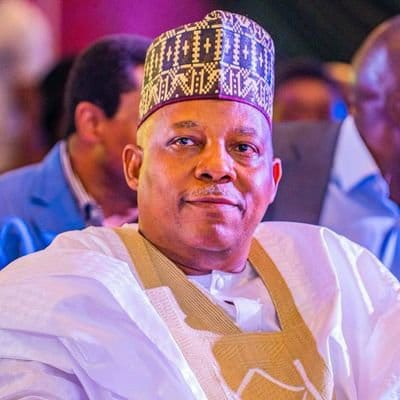..Says Nigeria Targets $2.5bn Carbon Market Activation
By Chidi Ugwu
Vice President Kashim Shettima on Monday
reiterated that climate change is a pressing threat requiring immediate action, advocating that African nations must come together to compare notes, adopt peer learning mechanisms, and agree on practical solutions to effectively mitigate the effects.
Shettima stated this when he addressed the Second Africa Climate Forum which held on October 14, 2024 in Abuja, emphasizing that any solution for Africa’s climate future must begin with protecting the continent’s ecosystems, promoting sustainable practices, and building climate-resilient communities.
The Vice President, who was represented by the Special Adviser on NEC and Climate Change, Miss Rukaiya El-Rufai, also said that already Nigeria has set in motion several initiatives aimed at transitioning to a low-carbon economy, stressing that Nigeria has established a Committee for the Carbon Market Activation Plan, positioning it at the forefront of creating a robust, sustainable carbon market projected to be worth $2.5 billion.
“We have been at the mercy of unpredictable water bodies, perennial floods, disrupted livestock production, intermittent power generation, and food crises.
“These climate-driven realities are not just calls to action; they are vivid reminders that none of us is immune to their consequences.
“This is why we must come together to compare notes, adopt peer learning mechanisms, and agree on practical solutions that will move us forward.
“As we deliberate here today, I urge all of us to recognise that any solution for Africa’s climate future must begin with protecting our ecosystems, promoting sustainable practices, and building climate-resilient communities.
“The brunt of climate change that Africa faces can only be mitigated if we stand together.
“The interventions we implement today will not only secure a greener future through social innovation, but will also serve as our springboard into global leadership on climate action.
“We are bound here today by a shared vision that transcends borders and ideologies—a vision that seeks to navigate the pathways of our collective future.
“Our nation has been proactive in taking steps to address climate change. One such step is the Climate Change Act of 2021, which aims to achieve low greenhouse gas emissions and sustainable, green growth.
“This Act sets ambitious targets, including the goal of reaching net zero, and serves as a cornerstone of our efforts to transition to a more sustainable future. Our Energy Transition Plan (ETP) further outlines our commitment to achieving net zero emissions by 2060.
“Alongside this, the National Climate Change Policy (NCCP), Debt-for-Climate Action Swaps, and Renewable Energy Targets are key interventions designed to accelerate our progress, whether through policy adjustments or financing the transition to a low-carbon economy.
“Moreover, Nigeria has established a Committee for the Carbon Market Activation Plan, positioning us at the forefront of creating a robust, sustainable carbon market projected to be worth $2.5 billion” he said.
Earlier, the Director General of the Global Centre for Law, Business and Economy (GCLBE), Prof.George Nwangwu, in his welcome remarks recalled African Climate Forum (ACF) 2023 emphasized “Financing Energy Transition for Sustainable Progress,” addressing climate finance tailored for Africa.
According him, while key resolutions included developing local climate finance products and enhancing public-private sector linkages, the
ACF 2024 will feature a Deal Room to connect financiers with project developers.
Prof Nwangwu noted that the forum will also tackle climate challenges faced by African nations, including the operationalization of the Fund for Responding to Loss and Damage.
“Discussions will focus on energy access, innovation, and the role of sub-national entities in implementing climate action, aiming to transform Africa from a climate victim to a leader in sustainable solutions” he added.












